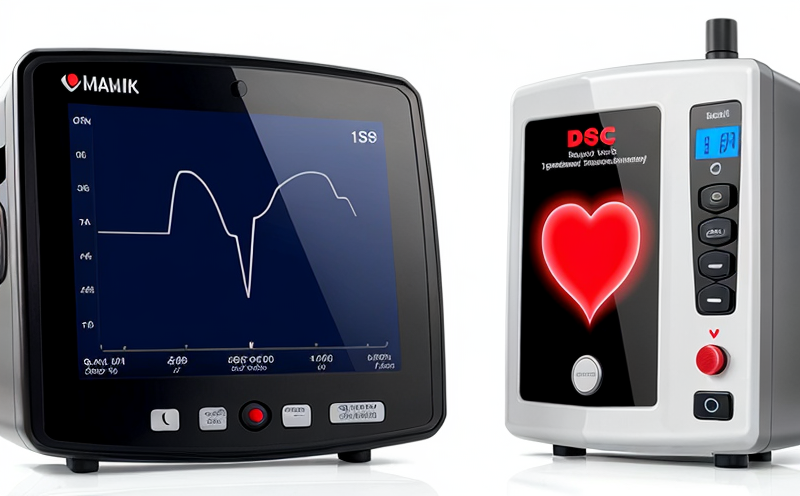ISO 7198 Vascular Prosthesis Tensile Strength Testing Validation Method Development Test
The ISO 7198 standard provides a validated method for testing the tensile strength of vascular prostheses. This test is crucial in ensuring that medical devices meet stringent performance and safety requirements, particularly in cardiovascular applications where device integrity directly impacts patient outcomes.
Cardiac and cardiovascular devices are subject to rigorous scrutiny due to their critical role in life-sustaining functions. The tensile strength of these prostheses ensures they can withstand the dynamic pressures within the vasculature without failure. This test is a key component in the development, validation, and quality assurance processes for such medical devices.
The testing procedure involves subjecting vascular prostheses to defined axial loading until fracture or failure occurs. The data collected from this process not only validates the design but also provides insights into material properties and potential areas of improvement. This information is vital for continuous product enhancement and regulatory compliance.
For instance, in the development phase, engineers can use tensile strength testing to identify optimal materials that can withstand the unique stresses encountered during implantation and operation. During validation, this test ensures that the device meets predefined criteria set by regulatory bodies such as the FDA or EU MD-R technical files.
The methodology adheres strictly to ISO 7198:2014, which specifies a detailed procedure for conducting tensile strength tests on vascular prostheses. This standard ensures consistency and accuracy across different laboratories and facilities, thereby enhancing reliability in the testing process.
In summary, ISO 7198 tensile strength testing is not just about compliance with regulatory requirements but also about ensuring that medical devices are safe, effective, and reliable for use by patients. This test plays a pivotal role in the product lifecycle from design to final approval.
| Standard | Year of Publication | Description |
|---|---|---|
| ISO 7198:2014 | 2014 | Tensile strength testing of vascular prostheses. |
| ASTM F683-15 | 2015 | Standard test method for tensile properties of vascular prosthesis material. |
Applied Standards
The ISO 7198 Vascular Prosthesis Tensile Strength Testing Validation Method Development Test is meticulously aligned with the international standards detailed in the table below. These standards ensure that the testing process is accurate, reproducible, and meets the highest safety and efficacy criteria.
| Standard | Year of Publication | Description |
|---|---|---|
| ISO 7198:2014 | 2014 | Tensile strength testing of vascular prostheses. |
| ASTM F683-15 | 2015 | Standard test method for tensile properties of vascular prosthesis material. |
Benefits
The ISO 7198 Vascular Prosthesis Tensile Strength Testing Validation Method Development Test offers numerous benefits to medical device manufacturers, quality managers, and compliance officers. By adhering to this rigorous testing protocol, organizations can ensure that their products meet or exceed the stringent requirements set by regulatory bodies.
- Enhanced patient safety: Ensures devices are robust enough to withstand physiological stresses without failure.
- Informed design improvements: Provides data on material performance and potential weaknesses in design.
- Compliance with international standards: Supports the regulatory approval process by providing consistent, accurate test results.
- Improved reliability: Validates that devices perform consistently across different manufacturing batches.
- Evidence for quality assurance: Supplies objective data to demonstrate compliance and improve product performance.
Why Choose This Test
Selecting the ISO 7198 Vascular Prosthesis Tensile Strength Testing Validation Method Development Test is a strategic choice for organizations aiming to meet high standards of quality and safety in medical device manufacturing. Here are several compelling reasons why this test stands out:
- Accurate and reproducible results: Ensures consistent outcomes across different testing facilities.
- Regulatory compliance: Aligns with international standards, facilitating smoother regulatory approvals.
- Data-driven decision-making: Provides actionable insights into product performance and potential areas for improvement.
- Detailed methodology: Offers a comprehensive framework for conducting tensile strength tests on vascular prostheses.
- Expertise and support: Leverage the expertise of our experienced staff in medical device testing.





